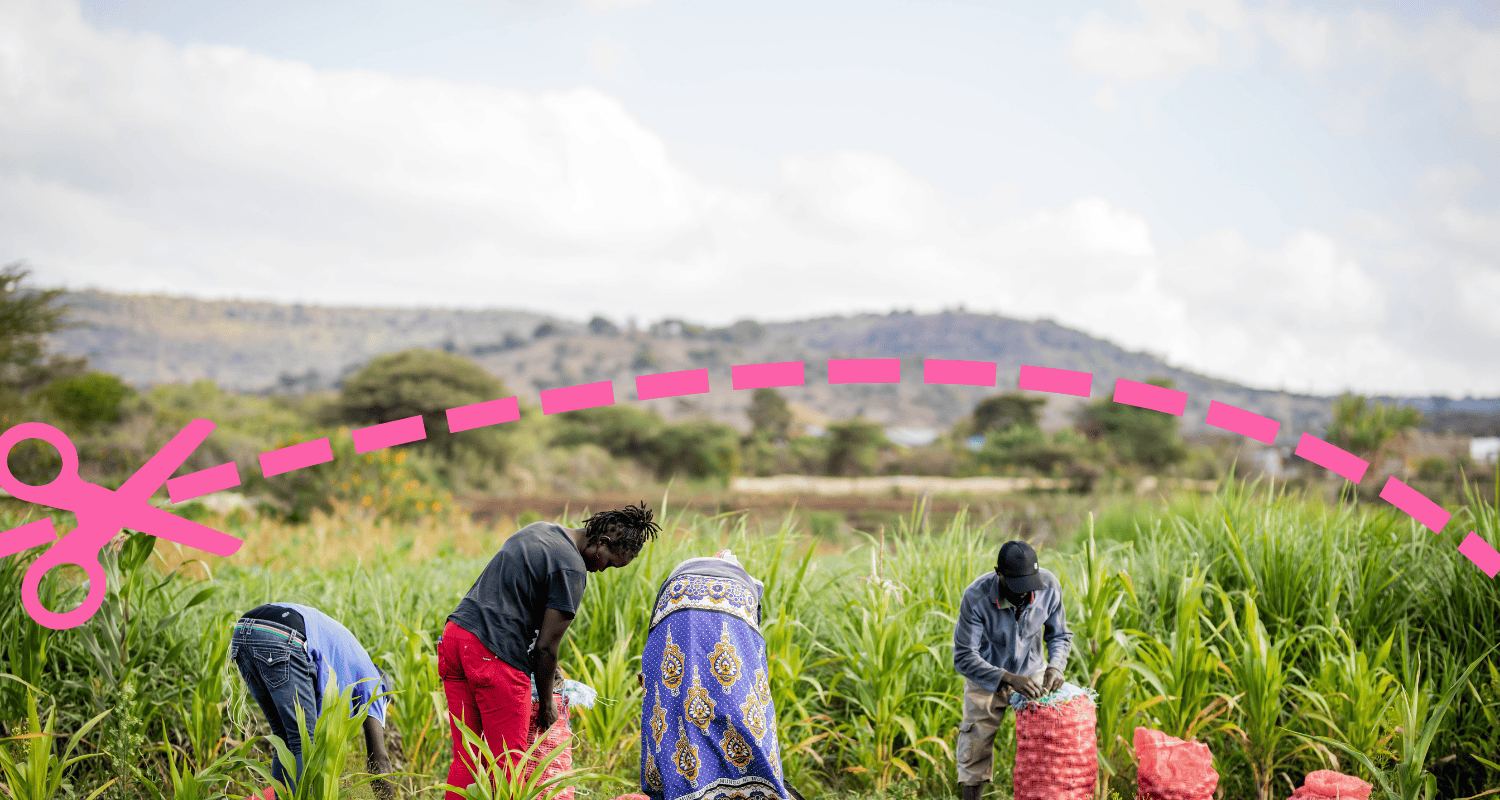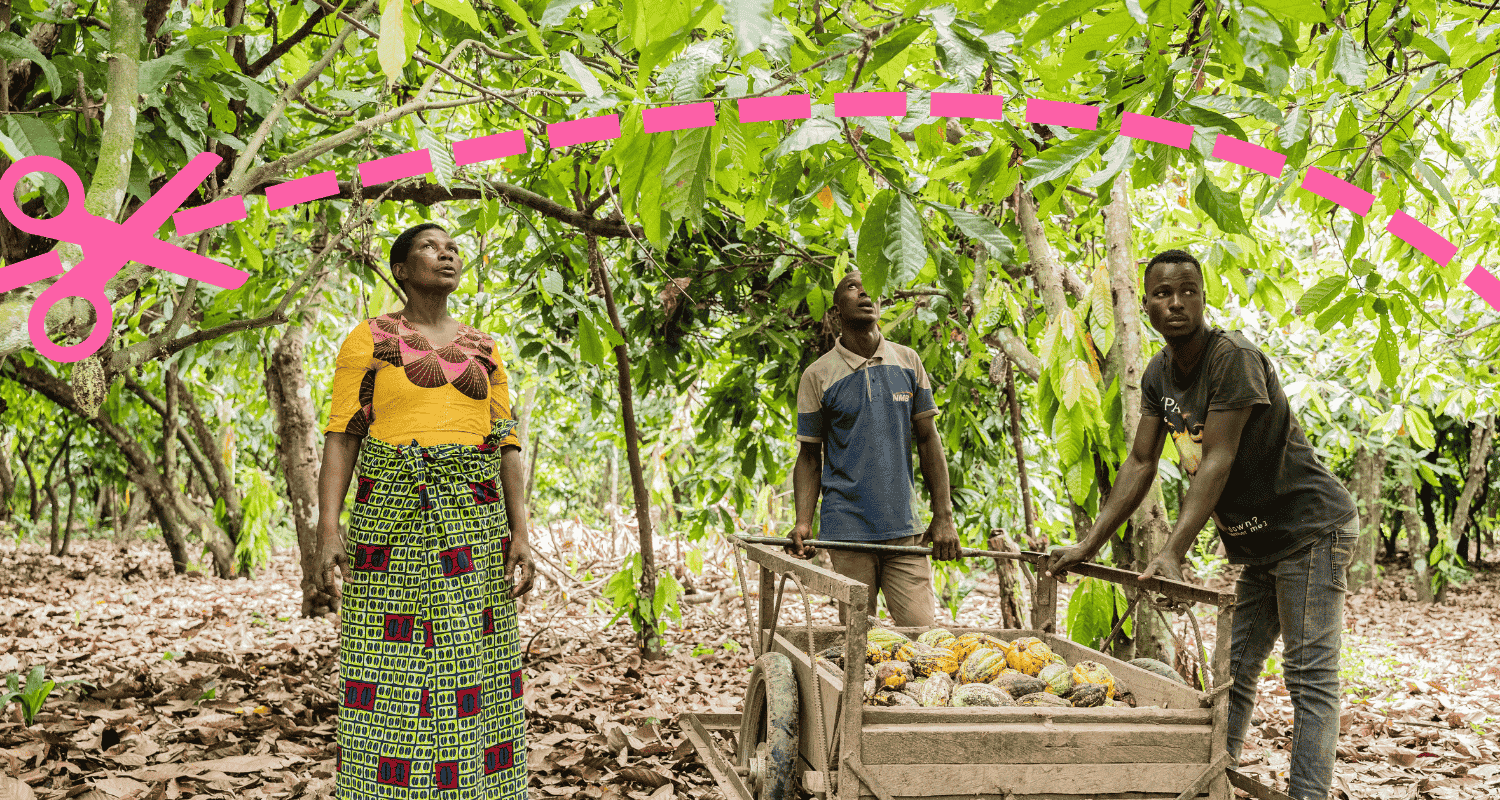
We can’t cut out smallholder farmers
They’re a vital part of our food system. Make sure their voices are heard as we tackle deforestation.
The cocoa in our chocolate, the coffee in our mugs - most of it is grown by smallholder farmers in Africa, Asia and Latin America. These farmers produce over 90% of the world’s cocoa and 60% of the world’s coffee.
But many are struggling to keep their businesses alive. Low incomes, climate change and unstable markets make life precarious.
Now, new rules aimed at tackling deforestation could make things even harder.
From 2025 in the EU, and soon in the UK, products like cocoa, coffee, palm oil and soy will be banned if they can’t prove they aren’t linked to deforestation.
That sounds good - but unless the rules are fair, they risk:
Pushing costs onto farmers who can least afford them
Cutting farmers out of vital markets
Taking away farmers’ control of their own data
Deforestation must stop - but smallholder farmers should not be the ones paying the price.
The solution that your MP needs to know about.
If governments and companies act responsibly, these new rules could both protect forests and empower farmers.
That means:
Listening to farmers and giving them a voice in decisions
Giving farmers training, resources and financial support
Ensuring farmers earn a living income
Protecting farmers’ data rights and building their capacity to use them
Guaranteeing transparency and fairness across supply chains

“Most farmers look at this as a burden…they do not look at it as an opportunity.”
— Irene Nakamate, Research Assistant, Meru University, Uganda
Add your voice: Call on the UK Government to back farmers, not cut them out.
The UK can set a global example: building deforestation-free supply chains that are also fair, inclusive and sustainable. But it will only work if farmers are part of the solution, not shut out by unfair rules.
With COP30 on the horizon, this is the moment to show that climate action and justice for farmers go hand in hand - the UK can lead the way with deforestation-free supply chains that are fair to farmers.

